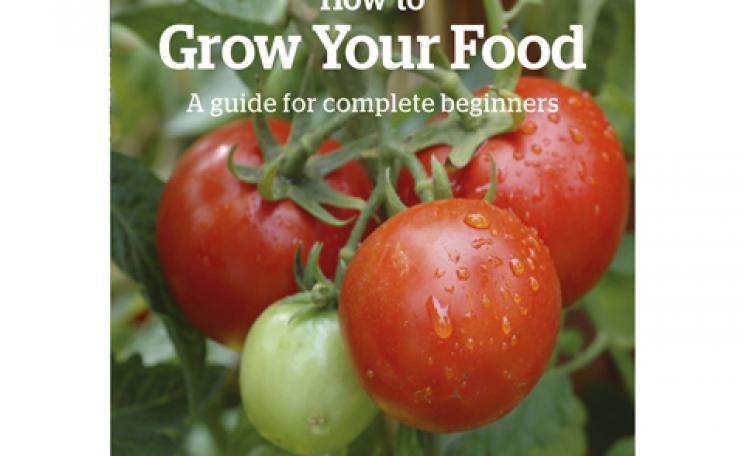For those who still believe the Idler is about laziness, it may come as a surprise to learn that Idler editor and Ecologist columnist Tom Hodgkinson has written a book about his experiences of running a smallholding. All that digging, mucking out animals and chopping wood sounds suspiciously like hard work. But since the Idler philosophy isn’t about avoiding work per se – rather dodging meaningless toil – it makes sense of a sort. It’s about freedom rather than wage-slavery, creative thrift instead of mindless drudgery, and self-reliance instead of helpless consumerism.
These are attitudes that used to be commonplace, suggests Hodgkinson, before the Brave New World of industrial capitalism swept us all into its smothering embrace. In the Brave Old World that preceded it, we valued ‘husbandry’, or ‘the fine art of looking after yourself’ as the book’s subtitle puts it. We could provide for ourselves, entertain ourselves, and take pride in our own competence. Hodgkinson is out to celebrate and reinstate these virtues. Hence the practical guide, a book about ‘turning your household into a creative and productive entity, rather than just somewhere to watch a gigantic television set after work.’
The book is divided into months, with a rough theme for each one. January – chop wood, February – dig earth, and so on, all filled with a variety of tasks around the house and garden. Some of these draw on the author’s own eight years on a rented North Devon farm. Other advice revisits the classic literature of husbandry, making this something of a historical review. There are suggestions from Hesiod’s shepherd’s calendar of the 8th century BC, gardening wisdom from Virgil and Pliny the Elder, through to John Seymour’s writings on self-sufficiency.
This is where the book’s heart lies, in these Latin maxims, snippets of advice, superstitions, and arcane lore. I particularly enjoyed the contributions from Thomas Tusser, who wrote a Tudor bestseller on husbandry. Presumably to make his advice more memorable to the farming peasantry, he wrote it in rhyme – ‘who weeding slacketh, good husbandrie lacketh.’ I doubt I shall ever have the time to read the whole of Tusser’s epic, but I feel enriched just for having read these highlights.
Of course, good advice about land management is timeless. June is still the month to ‘look to your bees for swarms’ and pen up the ‘porklings thou meanest to fat.’ I’ve planted lupins in my garden, and it turns out that the ancient Romans recommended this to refresh the soil, long before the science of nitrogen fixation was understood. This sort of wisdom proves Hodgkinson right when he insists in the introduction that the book is not ‘an exercise in whimsical nostalgia’, but an acknowledgement that sometimes, older and simpler ways of doing things are better. The scythe will outlast the strimmer, the book will outlast the iPhone.
As for Hodgkinson’s own husbandry skills, they leave a lot to be desired. ‘Do not follow my example’ he warns the reader, ‘do as I say, not as I do.’ He has his successes (‘my hedgerow jam was the best jam ever made by a human being’) but the first of the household honey worked out at around £200 a jar. Raising and slaughtering a pig on site brought round the men with clipboards in short order. Attempts at Masanobu Fukuoka inspired ‘lazy gardening’ ended in a nightmare of weeds. It sounds like the Hodgkinson smallholding is a pretty chaotic affair, but it’s never anything less than thoroughly entertaining to read about.
Brave Old World is full of provocative rhetoric. ‘The New World has stolen our bread and sold a pale travesty of it back to us,’ says Hodgkinson of the ubiquitous supermarket loaf, something any home baker knows. The claim that ‘central heating is part of the comfortist-capitalist plot’ might be a bit more contentious, but no one can deny the appeal of a wood fire on winter evening. And that’s the spirit of the book – a celebration of a more sensual, more free, more spirited way of life. Most of us will never be entirely self-sufficient, but we don’t need to be cosseted consumerist weaklings either. So bake a loaf of bread, plant a tree, brew your own, and reclaim a little bit of the Brave Old World.
Brave Old World: A Practical Guide to Husbandry, or the Fine Art of Looking After Yourself by Tom Hodgkinson (£16.99, Hamish Hamilton) is available from Amazon
| READ MORE... | |
 |
REVIEW How to Grow Your Food: A Guide for Complete Beginners Taking into account the limited space available to the urban gardener, Clift and Cuthbert have produced a tome that’s perfect for the inner city horticulturalist, says Andy McKee |
 |
REVIEW Zen and the Art of Raising Chickens: The Way of Hen Don’t let the new-age title put you off, says Lindsey Warren. Clea Danaan’s Zen and the Art of Raising Chickens is a witty, original take on the art of hen husbandry |
 |
GREEN LIVING The A-Z of chicken keeping Can’t tell your Marans from your Malays? Jeff Holman presents the A to Z guide to chicken keeping |
 |
GREEN LIVING How to…grow your own herbs Whether you’re after a garden that’s both pretty and practical, or a ready supply of flavoursome home-grown herbs; Hazel Sillver has the goods on making your dream herb garden a reality |
 |
GREEN LIVING Five of the best…natural and organic fertilisers Chemical free and perfect for an organic kitchen garden, Jeff Holman rounds up the organic fertilisers that will leave your plants blooming gorgeous |






